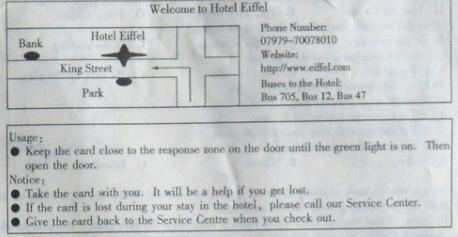题目内容
完形填空。(每小题 2分,共 20分)
根据短文内容,从 A、B、C、D 四个选项中选出一个最佳答案,并把答题卡上对应题目的答案 标号涂黑。
Do you often communicate with your parents? Some parents are always comparing their 41 with themselves when they were young or with other people when they were children.
"When I was your age," a father said to his sixteen-year-old son one day, "I was at the top of my class every year. And I 42 what I wanted to do when I left school. I had goals (目标). You are always at the bottom (最后) of your class 43 you have no goals."
The man’s son said nothing. He had already heard this from his father many times. "And when your mother was your age, " the young man’s father 44 , " she had a good job and she 45 lots of money. You don’t even have a part-time job .You earn nothing. " The man’s son still said nothing. He had heard this before, too. "
And when your 46 brother was your age, "the young man’s father said, "he studied hard. But you just waste your time."
And the man’s son still said nothing.
Finally, the young man’s father said, "And when Abraham Lincoln was your age, he worked all day and studied at night."
This time the son 47 stay silent. "
And when Abraham Lincoln was your age, father," he said, "He was the President of 48 United States. 49 are you?"
His father had no answer 50 this.
Are your parents always comparing you with others? And what’s your reply? Do you have a better way to communicate with each other?
根据短文内容,从 A、B、C、D 四个选项中选出一个最佳答案,并把答题卡上对应题目的答案 标号涂黑。
Do you often communicate with your parents? Some parents are always comparing their 41 with themselves when they were young or with other people when they were children.
"When I was your age," a father said to his sixteen-year-old son one day, "I was at the top of my class every year. And I 42 what I wanted to do when I left school. I had goals (目标). You are always at the bottom (最后) of your class 43 you have no goals."
The man’s son said nothing. He had already heard this from his father many times. "And when your mother was your age, " the young man’s father 44 , " she had a good job and she 45 lots of money. You don’t even have a part-time job .You earn nothing. " The man’s son still said nothing. He had heard this before, too. "
And when your 46 brother was your age, "the young man’s father said, "he studied hard. But you just waste your time."
And the man’s son still said nothing.
Finally, the young man’s father said, "And when Abraham Lincoln was your age, he worked all day and studied at night."
This time the son 47 stay silent. "
And when Abraham Lincoln was your age, father," he said, "He was the President of 48 United States. 49 are you?"
His father had no answer 50 this.
Are your parents always comparing you with others? And what’s your reply? Do you have a better way to communicate with each other?
| 小题1: |
|
| 小题2: |
|
| 小题3: |
|
| 小题4: |
|
| 小题5: |
|
| 小题6: |
|
| 小题7: |
|
| 小题8: |
|
| 小题9: |
|
| 小题10: |
|
小题1: A 小题1: B 小题1: C 小题1: D 小题1: B 小题1: D 小题1:D 小题1: C 小题1: A 小题1: A
小题1:A 根拇下文父子间的对话可知,所比较的对象是自己孩子的童年与自己的童年,以及別人的童年与自己孩子的童年。
小题1:B 这句话是在讲述过去的事件,所以要用过去的某个时态,只有B选項是过去时;A选項是一般现在时,C是将来时,D则是现在完成时。
小题1:C 与父亲比较起来,儿子不但成绩倒数,而且没有目标。这两句话应该是递进的关系,and可以表示递进关系。
小题1:D 考查词组辨析。根据语境可知,这句话要表示的是“父素接着说了起来‘……’”,选项中只有went on意思是“继续说,接着刚才的说”;went away意思是“离开”; went over“复习,仔细检查”;went up“上升,増长",这三项都不符合题意。此外,此题答案还可以从第七段找到线索,这里也用到了…the young roan’s father went on ...。
小题1: B make money固定短语用法,表示“赚钱”之意。
小题1:D elder brother哥哥。当你的哥哥是你的年龄的时候。
小题1:D 整篇文章主体时态是一般过去时,所以所选动词需是过去时,那么A、B项可以首先被排除。联系下文可知,儿子这一次不再沉默,所以要用could的否定形式。
小题1:C 美国的国家名称前面要加定冠词。
小题1:A 这句话是儿子反问父亲,空白处应是用作宾语的疑问词。how和where只能作状语;who不符合文意。
小题1:A to为介词。answer to……的答案。他的父亲没有回答这个。

练习册系列答案
 阅读快车系列答案
阅读快车系列答案
相关题目




 dents spend their winter break.
dents spend their winter break. coming exam.
coming exam. he passage is mainly about _______.
he passage is mainly about _______.